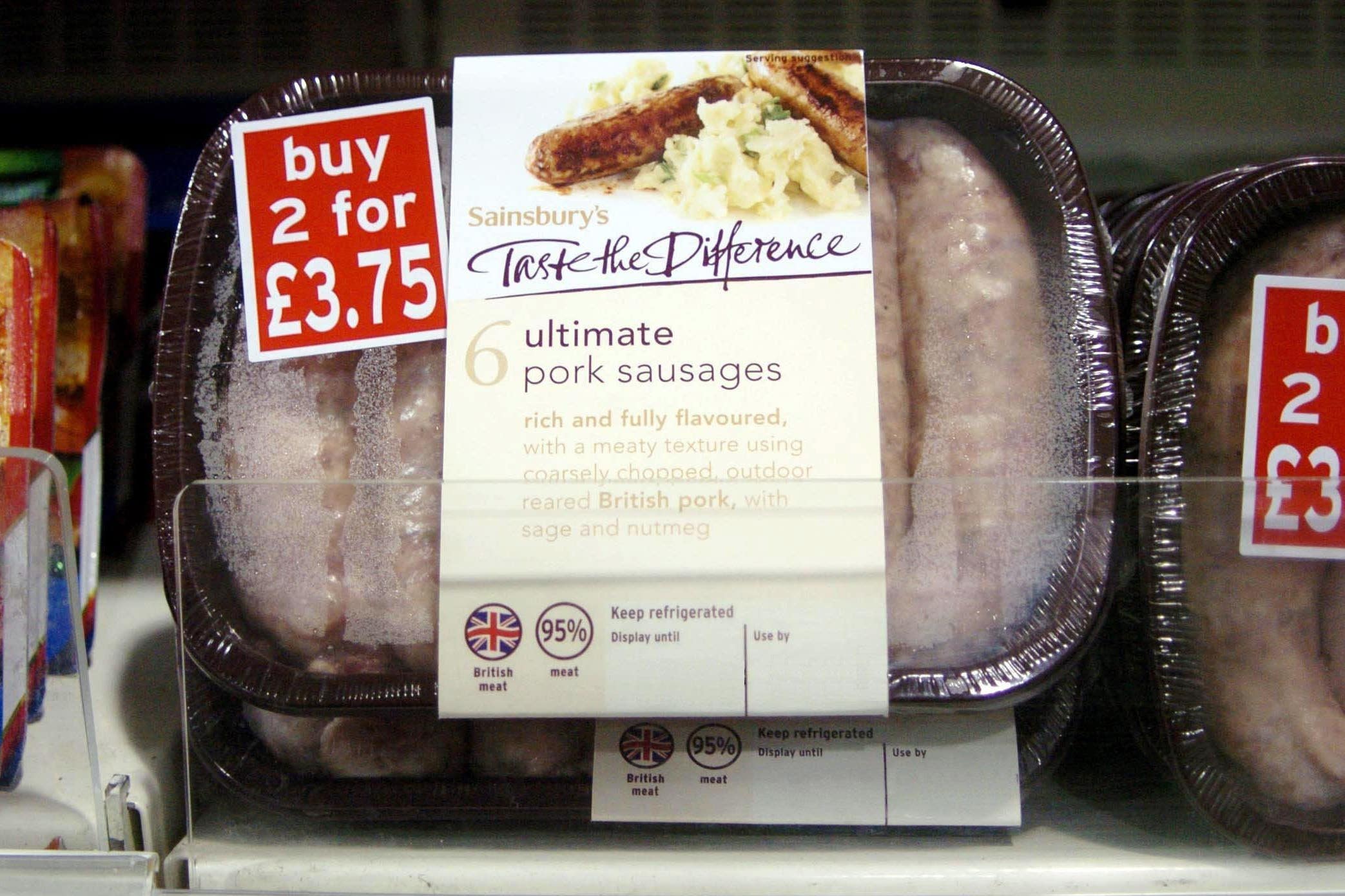Food safety watchdog warns don’t eat food past use-by date or turn off fridge
Almost a fifth of people (18%) turned off a fridge or freezer containing food at least once in the last month to reduce energy bills and save money.

Your support helps us to tell the story
From reproductive rights to climate change to Big Tech, The Independent is on the ground when the story is developing. Whether it's investigating the financials of Elon Musk's pro-Trump PAC or producing our latest documentary, 'The A Word', which shines a light on the American women fighting for reproductive rights, we know how important it is to parse out the facts from the messaging.
At such a critical moment in US history, we need reporters on the ground. Your donation allows us to keep sending journalists to speak to both sides of the story.
The Independent is trusted by Americans across the entire political spectrum. And unlike many other quality news outlets, we choose not to lock Americans out of our reporting and analysis with paywalls. We believe quality journalism should be available to everyone, paid for by those who can afford it.
Your support makes all the difference.The food safety watchdog has warned consumers against eating food past its use-by date or switching off the fridge and freezer after finding significant numbers are doing both to save money.
The Food Standards Agency (FSA) said some consumers were taking risks with food safety because of money pressures and rising energy costs.
A survey by the FSA found that 40% of consumers are worried about being able to afford food in the next month.
Some 30% said they had skipped a meal or cut down the size of their meals over the past month because they did not have enough money to buy food.
It’s not a good idea to turn off the fridge or eat food past its use-by date as these things can lead to a higher risk of you becoming ill with food poisoning
The poll suggests that a third of people (32%) ate food past its use-by date – after which time the product can be unsafe to consume – at least once in the past month because they could not afford to buy more food.
Almost a fifth of people (18%) turned off a fridge or freezer containing food at least once in the last month to reduce energy bills and save money.
FSA chief executive Emily Miles said: “We know many people are worried about food affordability right now and our evidence shows that people are finding ways to save money where they can.
“It’s not a good idea to turn off the fridge or eat food past its use-by date as these things can lead to a higher risk of you becoming ill with food poisoning.
“Your fridge is a useful appliance that not only keeps your food safe but can help cut down what you end up throwing out. Keeping your fridge cold enough, 5°C or below, will prevent bacteria from multiplying on your food and make it last as long as it can.
“You should also keep food with a ‘use by date’ in the fridge and think about freezing it on or before the day of the date if you’re not going to use it.
“We’ve got lots more advice on our website to help people use their judgment and make informed choices, while staying safe.”
The FSA advises consumers to:
– Keep your fridge on to help keep you well and make your food go further. Use your fridge at the correct temperature (5°C or below) to help prevent food poisoning. If food is not properly chilled it could go off faster and be unsafe to eat.
– A use-by date on food is about safety. This is the most important date to remember. You can eat food until and on the use-by date but not after. You can also freeze food with a use-by date right up to the end of the date on the label.
– Best Before is about quality. The food can be safe to eat after this date – but it might not be at its best.
– Set your freezer to -18°C. This temperature delays chemical reactions within foods and puts bacteria “on pause”, allowing it to be kept for longer.
Jackie Bailey, campaigns manager for Love Food Hate Waste, said: “We estimate that the cost of wasting food for a family with children in the UK is around £730 per year, or £60 a month.
“Storing our food correctly at home in the fridge – or in the freezer – means it stays safe and lasts longer, which helps to stop good food from going to waste, saving us money.
“Turning the fridge off means food will not last as long and could put people at risk of getting food poisoning – as can consuming items beyond the Use By date.”